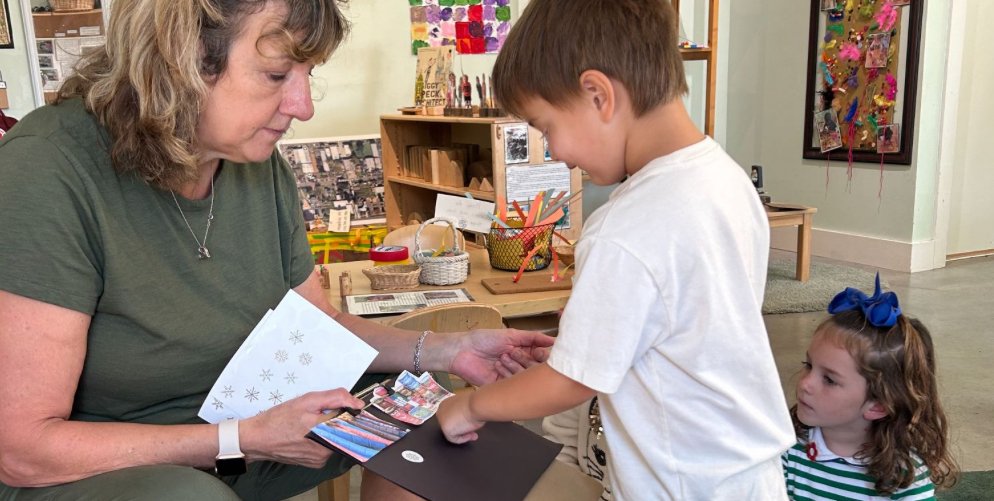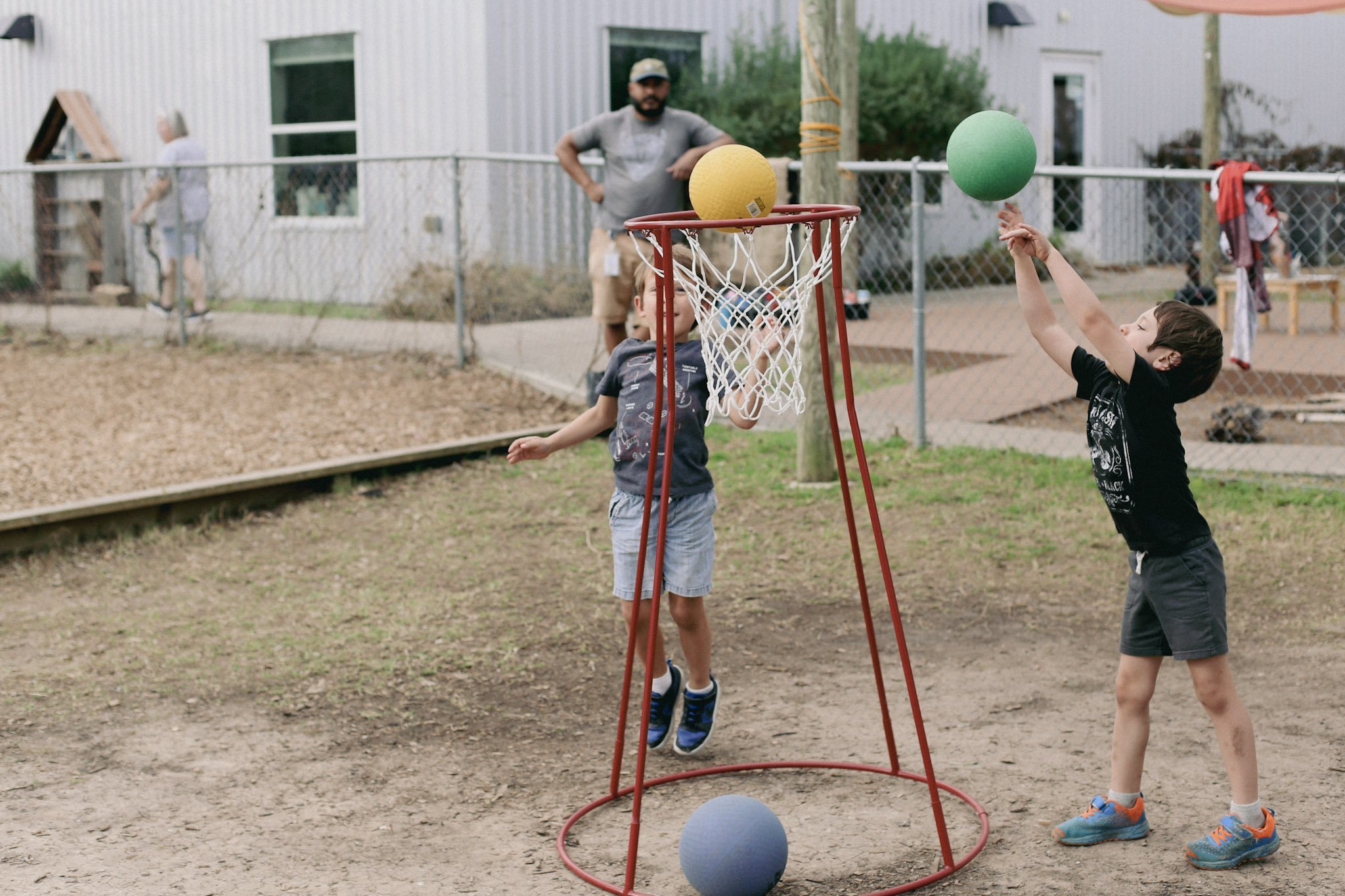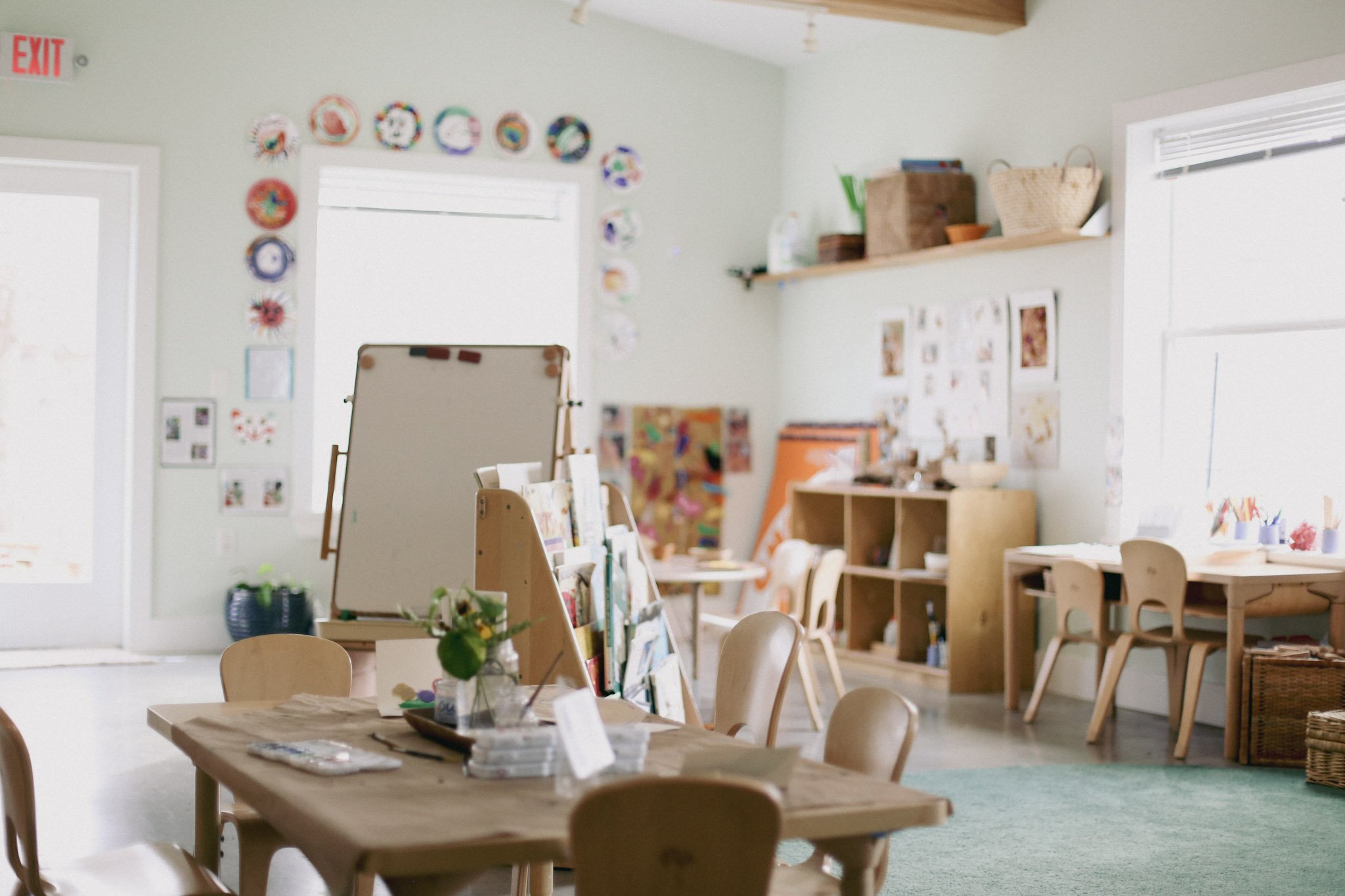Emerging Elementary
Blossom Heights School’s curriculum doesn’t just meet the TEKS (Texas Essential Knowledge and Skills), but many times, it exceeds them.
Our elementary curriculum, like our early childhood program, is guided by the Reggio Emilia philosophy. By integrating this child-centered, inquiry-based approach with the Texas Essential Knowledge & Skills (TEKS), we ensure that students not only meet but exceed academic standards. Our program is designed to nurture curiosity, confidence, and a deep connection to the natural world, providing children with the knowledge and skills they need to engage with the world thoughtfully and inquisitively. And always with fun and play as the vehicle for learning.
How our Reggio Emilia inspired curriculum meets the TEKS
-
Language & Literacy
Children engage in project-based learning experiences that emphasize storytelling, journaling, and collaborative discussions.
Literacy development is supported through exploration of real-world texts, documentation panels, and student-led research projects.
Oral language skills are developed through classroom dialogue, and presentations reinforcing TEKS standards in speaking, listening, and reading comprehension.

-
Mathematics
Math concepts are introduced through hands-on materials, real-world problem-solving, and exploration of mathematical patterns in nature.
Students develop numeracy skills through group projects, such as measuring and designing outdoor learning spaces, connecting mathematical reasoning to everyday life.
The emphasis on inquiry supports the TEKS requirement for mathematical processes, including reasoning, problem-solving, and communication.

-
Science
Science is driven by exploration and observation, allowing students to engage in experiments, field studies, and nature-based learning.
Topics such as life sciences, physics, and environmental studies are explored through long-term projects, aligning with TEKS while fostering scientific thinking.
Students document their findings through journals, photography, and collaborative presentations, reinforcing inquiry-based learning.

-
Social Studies
Children explore history, geography, and cultures through thematic studies, integrating storytelling, art, and research.
Community involvement is emphasized, allowing students to develop a strong sense of civic responsibility through service projects and collaborations.
The Reggio approach’s focus on interconnectedness aligns with TEKS goals of understanding historical contexts, cultural diversity, and economic principles.

It’s not just about academics.
-

Nature & Environmental Stewardship
Outdoor learning spaces serve as an extension of the classroom, allowing students to engage in gardening, animal care, and environmental conservation projects.
Nature walks and explorations encourage observation, questioning, and scientific documentation, meeting TEKS requirements for inquiry and investigation.
A focus on sustainability help students develop a sense of responsibility for the natural world.
-

Art and Creative Expression
Art, music, and movement is woven throughout all subjects, allowing students to express their learning through multiple mediums.
The classroom environment features student-created artwork, sculptures, and collaborative projects that reflect ongoing studies.
Creativity and self-expression is nurtured, aligning with TEKS fine arts standards while encouraging children to communicate their ideas visually and kinesthetically.
-

Movement & Physical Education
Children engage in free movement, outdoor exploration, and hands-on activities that naturally develop coordination, balance, and body awareness.
Reggio-inspired environments often incorporate loose parts play, obstacle courses, and sensory-rich activities that encourage agility and strength.
Children are immersed in collaboration and community, fostering teamwork through group-based physical activities. They participate in partner and group challenges, such as constructing movement sequences, nature-based scavenger hunts, and cooperative games that promote problem-solving and communication.

